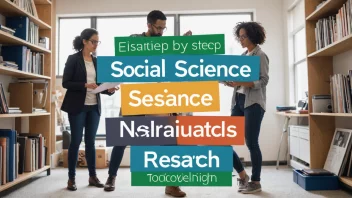Introduction
As artificial intelligence (AI) continues to evolve and integrate into various aspects of society, the ethical implications surrounding its use have become increasingly significant. Engineers play a crucial role in shaping the frameworks and technologies that govern AI, ensuring that ethical considerations are at the forefront of development. In this article, we will explore the top five ways engineering is influencing the future of AI ethics.
1. Designing Ethical Algorithms
Engineers are tasked with creating algorithms that not only perform tasks efficiently but also adhere to ethical guidelines. This involves integrating fairness, accountability, and transparency into the algorithmic design process.
- Fairness: Ensuring that AI systems do not perpetuate biases present in training data.
- Accountability: Establishing clear lines of responsibility for AI decisions.
- Transparency: Making algorithms understandable and accessible to users.
2. Implementing Robust Data Privacy Measures
With the vast amounts of data required for AI training, data privacy is a significant concern. Engineers are developing advanced encryption methods and data anonymization techniques to protect user information.
- Encryption: Utilizing strong encryption methods to secure data at rest and in transit.
- Anonymization: Removing personally identifiable information to safeguard user privacy.
- Access Control: Restricting data access to authorized personnel only.
3. Establishing Ethical Guidelines and Standards
Engineers are collaborating with ethicists, policymakers, and industry leaders to create comprehensive ethical guidelines and standards for AI development. This collaborative approach ensures that diverse perspectives are considered.
- Interdisciplinary Collaboration: Bringing together experts from various fields to address ethical challenges.
- Standardization: Developing industry-wide standards that promote ethical AI practices.
- Continuous Review: Regularly updating guidelines to adapt to new technological advancements.
4. Promoting Inclusive AI Development
To avoid perpetuating existing inequalities, engineers are focusing on inclusive AI development practices that consider diverse user groups and their needs.
- Diverse Teams: Encouraging diverse teams to bring unique perspectives to AI projects.
- User-Centric Design: Designing AI systems that prioritize the needs of all users, including marginalized communities.
- Community Engagement: Involving communities in the development process to ensure their voices are heard.
5. Leveraging AI for Social Good
Engineers are increasingly focused on harnessing AI technologies to address pressing social issues, such as climate change, healthcare access, and education.
- Health Solutions: Developing AI applications that improve healthcare delivery and patient outcomes.
- Environmental Monitoring: Utilizing AI to track environmental changes and promote sustainability.
- Education Tools: Creating AI-driven educational resources that enhance learning experiences.
Conclusion
As we look to the future, the intersection of engineering and AI ethics will play a pivotal role in shaping a responsible and equitable technological landscape. By prioritizing ethical algorithms, robust data privacy, inclusive practices, and leveraging AI for social good, engineers can ensure that AI development benefits all of humanity. The commitment to ethical considerations in engineering will not only enhance the trustworthiness of AI technologies but also foster a sustainable future.






